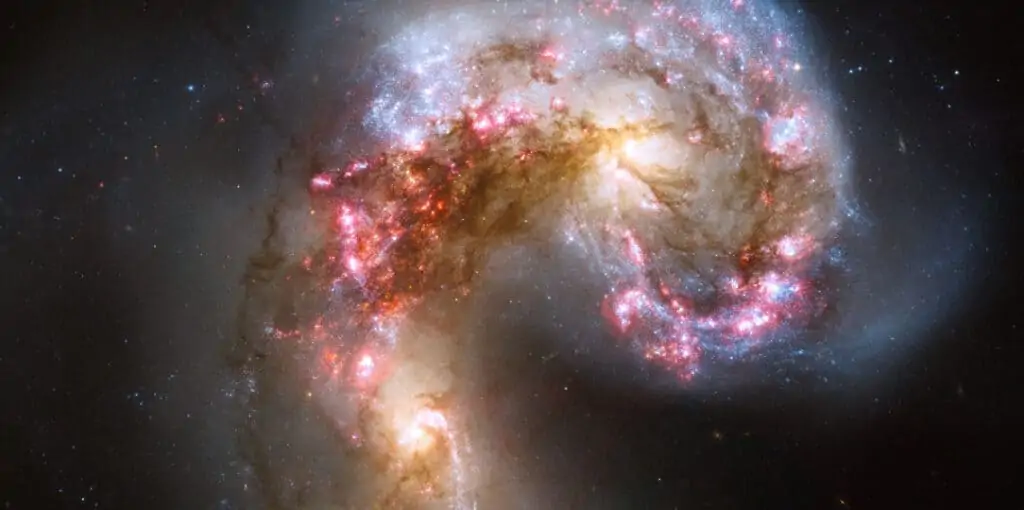I know that timid breathing. Where
Do I begin and end? And where,As I strum the thing, do I pick up
That which momentously declaresItself not to be I and yet
—Wallace Stevens, from “The Man With the Blue Guitar”
Must be. It could be nothing else.”
For the poem to fully exist on the page, it takes full involvement with another’s psyche. The breath of the poem embodies the original writer, in air and nerve. Poetry is a medium of participation, what is called a dyad. It highlights our embedded unconscious relation to one another and the world. Spontaneously, it also features what separates us, pointing towards the dark matter, honoring its unknown capabilities. Poetry underlines literal negative space on a paper, in breath. Poetry is a transference, a mirroring, of psyche. It is heredity and echo. Allusion. It is individuality at its most authentic; universality at its most impish. It is the undefinable, essential intimacy of human thought leaking out through language.
I wanted to share some very raw thoughts on my research—totally lyrical in spirit—half embodying the Wallace Steven’s quote that “[i]n poetry, you must love the words, the ideas and images and rhythms with all your capacity to love anything at all.” I find myself reading like I’ve wanted to read my whole life: without expectation beyond my own mind’s curiosity and inexplicable excitement towards a subject. I am deep in methodology, theory, and the long-dead intellectual blazing minds of men like Gaston Bachelard, William Empson (in his raving buttoned-up examination of ambiguity), Carl Jung, and Donald Winnicot. This is a fervor vitalized out of some pandemic-ravaged reincarnation, a renaissance of consciousness: suddenly more fully aware of its obsessiveness with paper and ink and paint. It is of language and symbol—art and poetry’s semi-formed meaning-making—and all made possible through a painful, relentless engagement with the process of psychodynamic therapy.
This exploration is akin to witnessing a painting of an electric eel draped over the shoulders of a Bacchus who, in turn, is caught in the spiral of our galaxy, caught in a spell of humanity. The very poetry and party of the universe are reflecting back in tiny versions across the tiny minds strewn on earth. Earth not even the center of its own solar system! It is in a much better position: off-kilter and zooming some inexplicable way away by the unclear dynamic opaque matter post-intelligencer. Dark matter, which apparently provided our very existence and, for whatever reason, lays in us like rolled up joints waiting to be lit.
Well. I find myself going a little bit mad with some rare and frightening (yet benevolent) passion.
I’ve flailed down the river of poetry since I was born, shipwrecked with a possessed poet at the family helm. Thus, my relationship to poetry has always been woven into a complex disturbance of family currents and inherited suffering. Equally, poetry and art smoothed a relational process with the world. It calmed the waters of separateness. It translated fear, it divined the shadow, it punctured horrors with pins until they wheezed into flaccid bags at our feet. It was what linked us to reason, to what mattered. It was the only antidote. But it wasn’t enough. The untranslated that must be addressed in the psyche needs relation to a human, in real time, to be actually translated.
Successful poems, like good therapy, allow for a unique playing field. The playing field is the office (“room” is stanza in Italian), with the vital negative capability for the reader (patient?) to step into. (The differences are obvious. I’m not here to be absolute, that is dangerous territory. Therapists are highly trained and work with intense traumas in the physical presence of one another. The abstract realm of poetry is, well, abstract space. However, the realness of the therapy of poetry, in the way that therapy understands human thought, is overwhelmingly there. The roles of poet-therapist, reader-patient fluctuate.) We are all capable of being on one side of the room or the other. Therapists aren’t machines. They are people, and both sides are involved. Moreover, poets are the ones with the “memories” and the “experiences” being thrust onto the playing field. Poets, too, share a great relation to the patient persona, offering the reader the role of therapist through language and projection.
In other words, we are all the “reader” and the potential “writer.” We mutually create one another’s projected shit. “It requires two minds to think a person’s most disturbing thoughts,” Wilfred Bion said. We make it real. We mutually transmute it. We continue its life and add to it. We make one another eternal.

